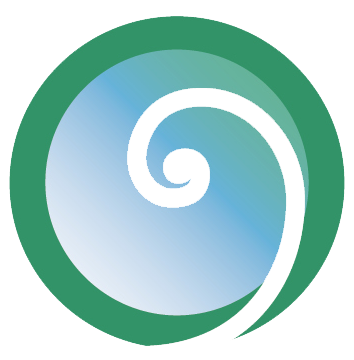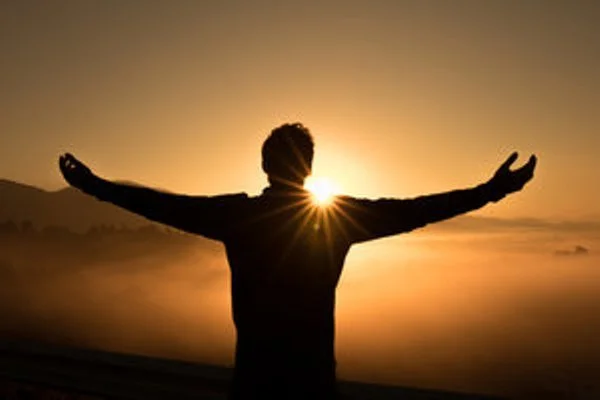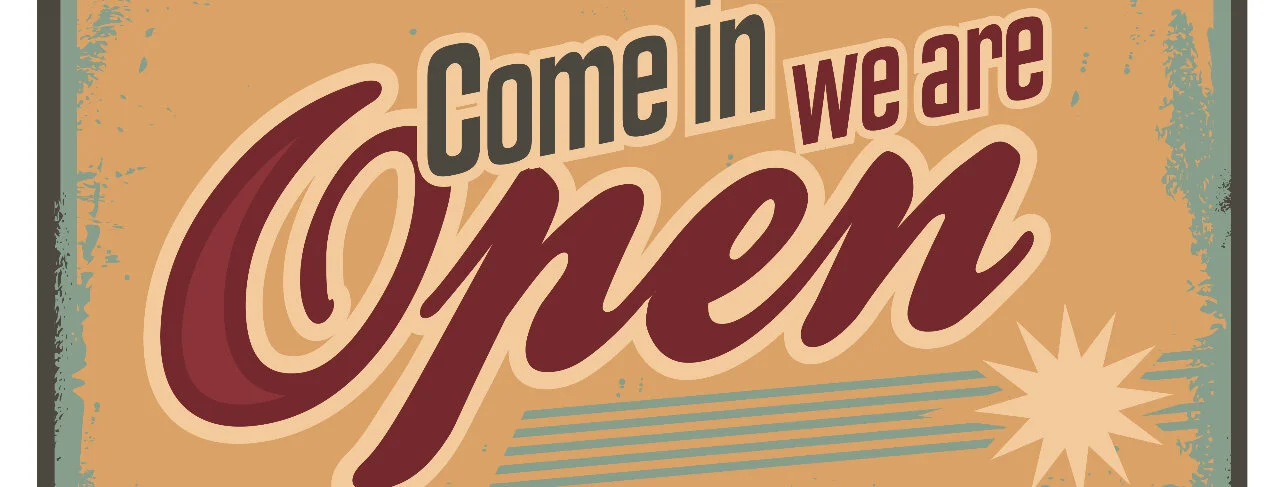I recently put on my Beginner’s Mind hat and asked myself, “What are the fundamentals of my work? What can I say truthfully with confidence, born of direct experience?”
Getting back to basics feels good, and I surprised myself with the number of fundamentals I came up with. What wasn’t a surprise was the fact that they don’t just apply to the work I do. They are all basic truths about what it is to live as a human being.
The Alexander Technique isn’t a set of exercises, but it’s crucial to practice every day. So, what exactly are you supposed to be practicing? And unless you’re a monastic or have the luxury of going on a long retreat, you’re not spending the majority of your time in meditation. So what can you do when you’re not meditating that will support and strengthen present moment awareness?
Start by seeing everything you experience as a place of practice.
We may have delusions about our ability to prevail against dark forces seeking to undermine all our good, hard work but the reality is that we can only use the skills and wisdom we possess. If we don’t have a reliable foundation to draw on during difficult times, we will be thrown on our behinds. You can only use the tools you’ve got at hand, only use them in the ways you have developed.
From the moment you arise in the morning until you rest your head on the pillow at night, you probably do quite a lot. We do so much that we have to consciously choose "down time” to give ourselves rest.
But what about the time in between those daily tasks? The transitions from Point A to Point B go by unnoticed, because we are busy getting to whatever is next.
Are you the owner of your body?
This is a fundamental question that reveals perspectives on the body and how yourelate to it. And depending on how you relate to your body, you will inevitably move according to the nature of that relationship. Along with your mind, this is your most intimate relationship. Yet attitudes about the physical self go largely unnoticed.
A 3-minute video about the 3 most common reasons people come for Alexander Technique lessons.
A recent interview with MysticMag - a fascinating webiste for all things holistic.
Ever wonder what “Way Opens” means? Hint: it points to “trusting in the natural unfolding of life.”
I learned a long time ago that I don't have to be afraid of fear. It's an energy, and a rather unpleasant one -- unless you're choosing a scary book or film as entertainment. It can be mild and continuous or sudden and strong, but as emotions go, it's one of the easiest to recognize. And one of the hardest to bear.
Abundance. Acceptance. Gratitude. We often talk about these qualities as something to cultivate, but the truth is, they are natural states of being. We don’t have to work hard to access them. It’s more like we need to remember them.
Weeding is just like living mindfully. The metaphor of gardening as cultivation of mindfulness is a classic and I didn’t suddenly invent it last week, but I deeply appreciate learning this dharma lesson through direct experience. There are many parallels. Here are some that I’m discovering.
Over the years I have heard statements that rang true and woke me up to reality. These are truths that seem obvious upon hearing, but also feel familiar because they are easily verifiable by direct investigation or experience. It leaves you wondering, “how could I have forgotten this?” or amazed that you’ve never thought of it in that way before. The truths that blow your mind.
The spring equinox brings an equal amount of daylight and darkness, and it’s a good time to explore balance. Learning to surf the waves of life requires a commitment to turn toward direct experience, to include whatever is arising with acceptance, to learn how to balance in the gap between stimulus and response. Equanimity develops as the other factors of awakening are cultivated, and mindfulness is the link between them all.
Two weeks into the new year, and many of us are already hitting trouble spots in sticking to our resolutions. That’s pretty typical, because deep and lasting change is not easy. The poet Rumi has some wise advice for how to stay awake and keep honoring those intentions.
If the past year is an old man, and the new year is a baby, how do you relate to babies? As a new year begins, is it possible to approach our lives and relationships like they are a baby? That stuff you went through in the past year that makes you feel like you really need to get your act together? That's your teacher, your friend, a gift.
Getting grateful shifts your perspective. Scientific evidence suggests that expressing your gratitude directly to someone, or just between you and the Universe, is the key to being a kinder, happier, more creatively engaged person. The ability to be thankful is built right into us, so we don’t need to manufactire it. Yet when we choose to practice being grateful, joy is the result.
Includes a Bodymind Experiment.
The wise and wonderful Joseph Goldstein said, "We paint pictures in our minds of what will be, and then become frightened of our own imaginings." Have you found this to be true? I certainly have.
There is a difference between consciously resting and collapsing in an exhausted heap after working hard. It’s also not the same as taking a break to check your email or watch TV. Resting in awareness is restorative and rebalances everything. Really resting involves your participation.
One tried-and-true way to do this is Constructive Rest (CR).
Three things I learned about anxiety by being willing to fully experience my fear and worry in my body. Includes crowd-sourced on-the-spot methods for calming down when you’re super stressed and anxious.
One thing I keep learning, over and over again, is to put myself first. Does that sound selfish and uncaring? It might, because we have been taught that in order to be really good, really loving, we must sacrifice ourselves.
You know this is false. You know that self-care is the cornerstone to a high-functioning life, where you are empowered and free to love and care for others. You know that you cannot pour from an empty cup and that putting on your own oxygen mask first is a wise instruction.
I was 30 years old before I realized that I was disembodied. Like so many people, I walked around thinking I was living a life, and of course I was, but most of my existence played out in my head. I had almost no present moment awareness of my body.
In taking Alexander lessons, I found something better than the short-term safety provided by shutting down or numbing out. I literally learned how to feel my body once again.
I used to think I was rather damaged or deficient in this area, that normal people didn’t have to remember to be embodied.
I was wrong.
F. M. Alexander and the Buddha both came to understand is that there is no need to lean into the future, or make a big project out of meditating or moving. We don’t need to grasp each moment and squeeze out its essence. We can ease up.
Includes a Bodymind Experiment.
Have you ever wondered how you know you’re sitting and not, for instance, standing or lying down?
A key feature of the AT is its ability to activate kinesthetic awareness, which functions like a superpower, helping you know how you are doing anything that you might be doing. It is how you know what you’re sensing and how you sense what you’re knowing.
Includes a Bodymind Experiment
Success and failure are both teachers. Whether the journey is supremely successful or fails to launch at all, the learning happens in the evaluation phase. One teaching I’ve gleaned over the years is that the willingness to sit with “I don’t know” is bound to increase a sense of wonder, curiosity, authentic interest. And that’s a good attitude to bring to all phases of creative endeavor.
Thinking and feeling, logic and imagination, sensing and knowing -- these are not dichotomies but integrated aspects of human functioning and flow. Not only are we each an undivided entity, we are connected to all living beings: the entire biosphere is unified. And that well-known "gut feeling"? That's not just a concept, it is physiological fact.
To truly test a practice and its effects on your life, you must actively engage with the practice. But it may be easier to give something a try if you know its proven track-record. Here are multiple links to evidence for the effectiveness and the health benefits of the things I practice and teach: Alexander Technique, Qigong, and Mindfulness Meditation.
It has been my experience over 25 years of teaching somatics and mindfulness that most people are in a state of senselessness. Almost no one is fully inhabiting their body all the time.
Learning to Pause, Sense, Repeat is an easy, practical way to more fully embody your life.
Includes a Bodymind Experiment.
After so long of trying not to get too close to anybody, what does it feel like to begin again? What are some skillful ways to begin re-entry?
Includes a Bodymind Experiment.
Through continual practice of insight meditation and 30-plus years of Alexander awareness and teaching, I’ve become familiar with how major shifts in habitual thinking and being happen. Sometimes the experience of change feels big and nearly instantaneous, like a chunk of an iceberg breaking off and tumbling to the sea. Letting go occasionally feels like an avalanche.
Mostly though, change happens incrementally, bit by bit. Can you sense the gradual growth and changes in yourself?
I waved away notions of self-love as indulgent navel-gazing, an attempt to escape from the "realities" of the world and its troubles. Then I had an experience on retreat that changed all that. I began to realize how harsh I was with myself, and once recognized, this insight led to a huge transformation.
An essay called On Loving Myself can be a roadmap to move from self-loathing to self- love.






























I find it crucial to do the “inside job.” I have no control over what plays out on the world stage, but if I become more adept at knowing my own mind and heart, my own flaws and gifts, I stand a better chance of taking actions that can ease the suffering around me, and possibly even address the root causes of that suffering.